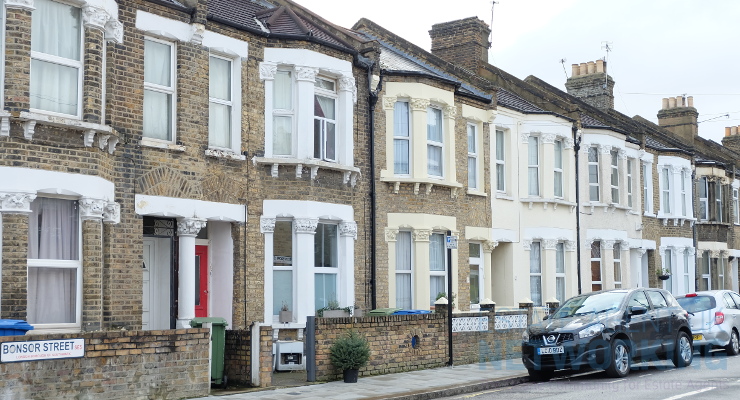BREAKING PROPERTY NEWS – 22/03/2022
Daily bite-sized proptech and property news in partnership with Proptech-X.
This is why Boomin is becoming the innovative property platform of choice
Since its launch, it’s been clear that Michael & Kenny Bruce’s Boomin is not in the same race as Rightmove, Zoopla and OTM. Instead, it has set out to be an innovator servicing the needs of stakeholders looking to do property.
In simple terms, Rightmove is a digital billboard that advertises property inventory for real estate professionals, increasing the charge annually for the privilege. It has proved a great model, generating 70% gross profit annually while at the same time growing its revenue base.
When Boomin launched, analysts and property pundits said that it would not replace Rightmove, instead crashing and burning as it used millions to get brand awareness up and running.

From an analyst’s perspective who held calls with the Bruces prior to its launch, I could see from day one that they were on a very different trajectory to the two-decade-old Rightmove portal model.
They were set to be pioneers, innovators even, sampling and testing the needs of the public and agents and building their model around it, showing true digital agility in the process.
Boomin has, up to this point, incorporated many different ideas into their offering. Also, I imagine they have also test-driven some others and found them to be wanting. But as a start-up, they have the huge advantage of moulding their service, unlike the other portals, until they find market fit.
Taking just one area of innovation, Boomin understood the value of social media and the role of influencers. Setting up their property YouTube channel, fronted by WillNE – an online personality with followers in the millions – was a masterstroke.
In the early weeks, however, this move was derided by many as just a sideshow to get some PR publicity, but the intent was far deeper and more coordinated. I spoke with Phil Lloyd at the time and it was clear that he was going to do things differently.
As he put it, everyone loves property, but… “until now property social channels have failed to provide suitable content to feed our addiction. People are looking for something new and fresh; they want to see the most exciting, jaw-dropping properties in the UK presented by the most influential people that are relevant to them, online.
“The majority of our subscribers are homeowners. We’re engaging a large, broad audience of consumers who are very much into property in a new and compelling way … We have huge ambitions to become the most entertaining property brand online, building a loyal subscriber base, and helping agents to connect with these audiences.”
I have been watching the development of Boomin closely, even though they are not one of my clients from my Proptech-PR consultancy, so I have an agnostic view. However, I really believe that Michael is a visionary, and when we finally met up for a pint and a talk at the end of last year it shone through. He just wanted to ‘move things on.’ As has been quoted before, Michael sees Boomin as the next chapter of property.

“Our DNA is all about innovation for agents, better experiences for everyone and helping agents to grab back the balance of power that they deserve as a customer of all the portals,” he says.
“Boomin was created differently, from the ground up, with the latest technology and a world-class team, which includes over 100 experts building on our technology every day. We will never stop innovating for the benefit of our agent partners – it is our DNA.”
Now Boomin has just announced that it is the top runner out of all the portals on YouTube – not bad for a nine-month sprint. This adds further credence to the idea that agile, lean businesses can often outgun behemoth legacy businesses that sit back and just wait for the cash to roll in.
Companies would do well to understand that user experience is king. Amazon noticed this early on, too. Look at them now.
Sales of 250,000 homes likely to fall through in 2022. Is this the new housing crisis?

Although 2022 has started as the year when there is very little property inventory coming to the market, the amount of agreed sales falling has set alarm bells ringing. From national figures, this year on average over 5,350 properties a week ‘sold subject to contract’ are aborting, unlike a year ago when the cancellation rate was much lower.
In pre-covid times, normally there are around 1.2 million completed sales a year. The fall-through rate at which agreed sales terminate before exchange tends to, as an industry norm, be around 28% to 31%. It varies regionally, but typically an estate agent agrees ten sales and seven go to exchange.
Last year, the rate at which sales were cancelled was relatively low. The factors amounting to this were numerous.
There was a ~£15,000 reduction in stamp duty if buyers completed before the end of the SDLT holiday, causing buyers to be hyper-focused on their purchase. We had lockdowns, too, so it was difficult to view a property, the choice was low and buyer’s remorse was not really a factor.
A significant amount of buyers, both first time and investment, bought new homes, reserving off-plan. In 2022 there is already a shortage of new home stock available due to several factors ranging from supply chains, skills shortages, cost of living, etc, so less stock to buy.
In 2021, money was cheap to borrow also. The Bank of England base rate was, until Q4 last year, sitting at 0.1%. After two increases in 2022, it already stands at 0.75%, and many financial pundits predict that by summer 2022 the base rate could rise to 1.0% or even 1.25%.
Rising interest rates have two reactions. Firstly, the cost of mortgages increases for first time buyers. Last year one in every two buyers was a first-time buyer – over 408,000 of them all told. If they get squeezed out of the property sector, as they underpin house transaction chains, this may further stagnate the market.
Secondly, in recent weeks, we’ve seen the grim developments of the Russian invasion of Ukraine. A war on European soil always causes uncertainty which permeates into the sentiment of the house buying and selling public.
In addition, we have new personal taxation biting next month, the cost of living crisis, and as part of that utilities and fuel prices moving to a point where moving home might be put on hold indefinitely.
All is not doom and gloom though. If you take an estate agent’s view of the market, there are 48 trading weeks of the year. If the cancellation rate of five thousand sales a week continues, that is a quarter of a million lost sales in 2022. Statistically speaking, this mirrors the typical fall through rate with the odd blip here and there.
If anything, it makes for a ‘normal’ property market, truth be told.









